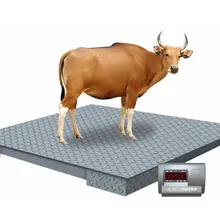The need to test materials before building with them is ever more important, especially nowadays, when people prioritize safety above everything else. Tensile test equipment can perform these studies and provide satisfactory material data.
What is a tensile testing machine?
A tensile testing machine, also commonly known as a tensile tester, universal tensile testing machine, and pull tester machine, is a machine that exerts tension into an object for the purpose of gathering data about that object's tensile strength under varying conditions, such as heat and moisture. Testing different objects and materials until breakage under controlled conditions is a much safer way than calculating for theoretical load limits only to find out that the calculations were wrong after all, putting material property and lives at risk. Tensile strength testing machines are commonly used in academic institutions, laboratories, and third-party engineering firms. They are also used in industries that have a very low tolerance for error, such as the aerospace industry, automotive industry, and military complex.
What are tensile testing machines applied?
Tensile testing machines vary according to the size of the machine, the amount of force that they can apply to a given object, the materials that they are specialized for, and the temperature that they can apply to a given object while testing its tensile strength. Big machines such as rebar tensile testing machines are used to test bulky objects such as steel pipe, beams, and of course, rebar. They are used by contractors to determine if a batch of steel rebar that arrives at a construction site falls within the standard. High-temperature mechanical tensile testing machines, on the other hand, can apply a range of temperatures to an object while testing it. Most materials would undoubtedly weaken above a given temperature range, and these machines can determine how objects behave when pushed to the upper limits of their temperature. This can allow engineers and designers to mitigate risks brought about by high levels of heat dissipation. There are also small desktop tensile testing machines, like the tensile testing machine for pet straps, that can test similarly small and light items.

































 浙公网安备 33010002000092号
浙公网安备 33010002000092号 浙B2-20120091-4
浙B2-20120091-4